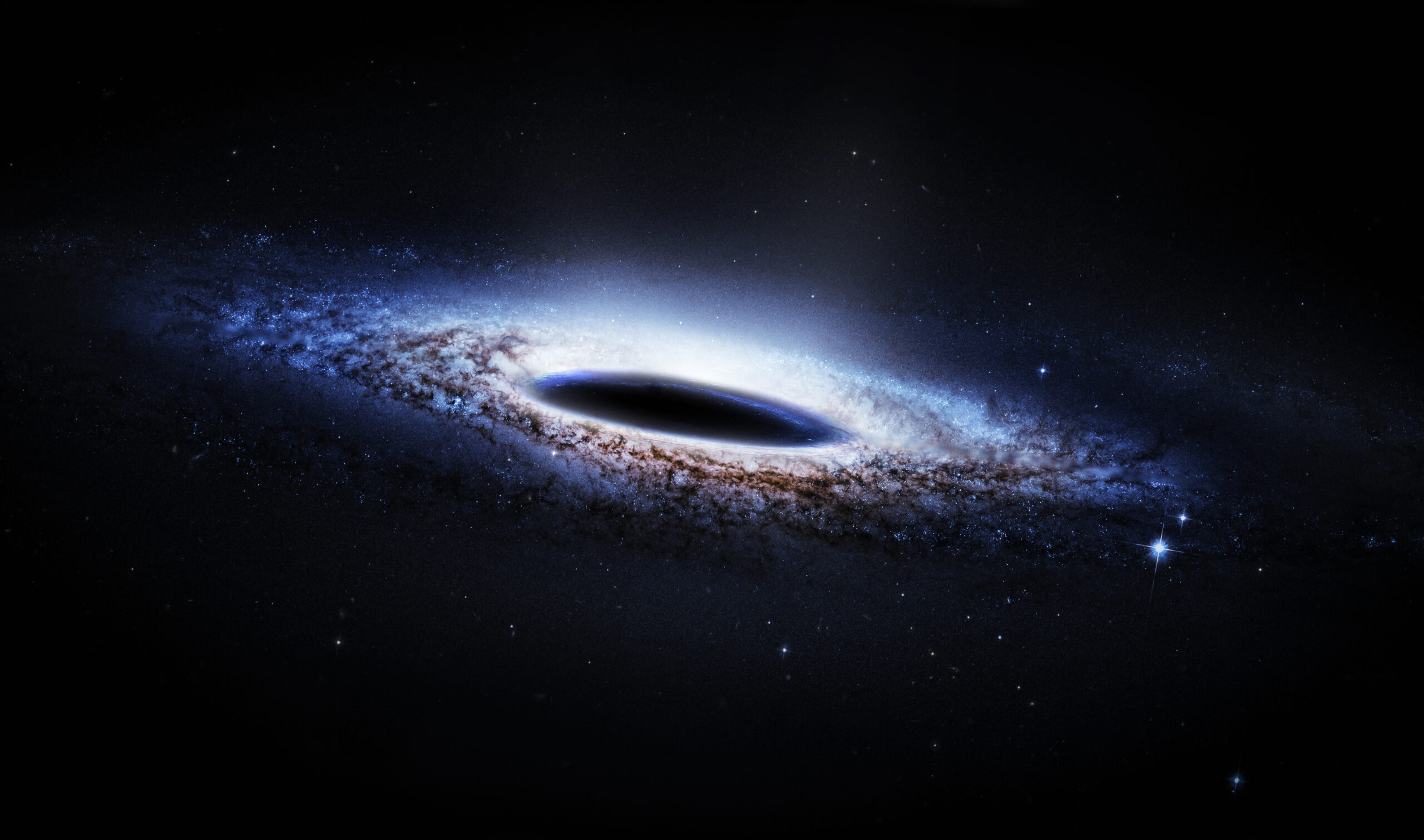Do Black Holes Have Limited Life Spans?
Question of the week: Does science indicate if black holes have limited life spans like the burning times of stars or will they consume surrounding matter and energy forever?
My answer: In 1974, the British physicist Stephen Hawking showed that black holes do have limited life spans. Hawking showed that quantum effects very close to the event horizon of a black hole will result in quantum space-time fluctuations producing particles. Many of these particles produced at the event horizon are reabsorbed, but not all. Some will escape as outgoing “Hawking radiation.”
All black holes are losing mass through Hawking radiation. For the vast majority of black holes that exist today, the mass they accrete from gas and stars outside the event horizon exceeds the mass they lose from Hawking radiation. For each black hole, however, there comes a time when the supply of nearby gas and stars outside its event horizon becomes exhausted. When that happens, the black hole begins to die. That is, it is on its way to losing all its mass through Hawking radiation.
In 1976, Christian physicist and friend of Reasons to Believe Don Page calculated how long it takes a nonaccreting black hole to die. He showed that the greater the black hole’s mass, the longer it takes for Hawking radiation to evaporate away all the black hole’s mass. For the smallest known black hole, the evaporation time is about 1066 years. For a supermassive black hole with a mass equal to 100 billion solar masses, the evaporation time exceeds 10100 years.
Near the end of a black hole’s life span the rate of emission is extremely high. During the last 0.1 seconds, black holes as small as twice the Sun’s mass would emit at least 1030 ergs. Larger black holes would emit much more. Astronomers refer to such death events as white holes.
So, yes, black holes have limited life spans but the life spans are many, many orders of magnitude longer than the age of the universe, at least a million trillion trillion trillion trillion trillion times longer!
Endnotes
- Stephen W. Hawking, “Black Hole Explosions?” Nature 248 (March 1, 1974): 30–31, doi:10.1038/248030a0.
- Don N. Page, “Particle Emission Rates from a Black Hole: Massless Particles from an Uncharged, Nonrotating Hole,” Physical Review D 13, no. 2 (January 15, 1976): 198–206, doi:10.1103/PhysRevD.13.198.





